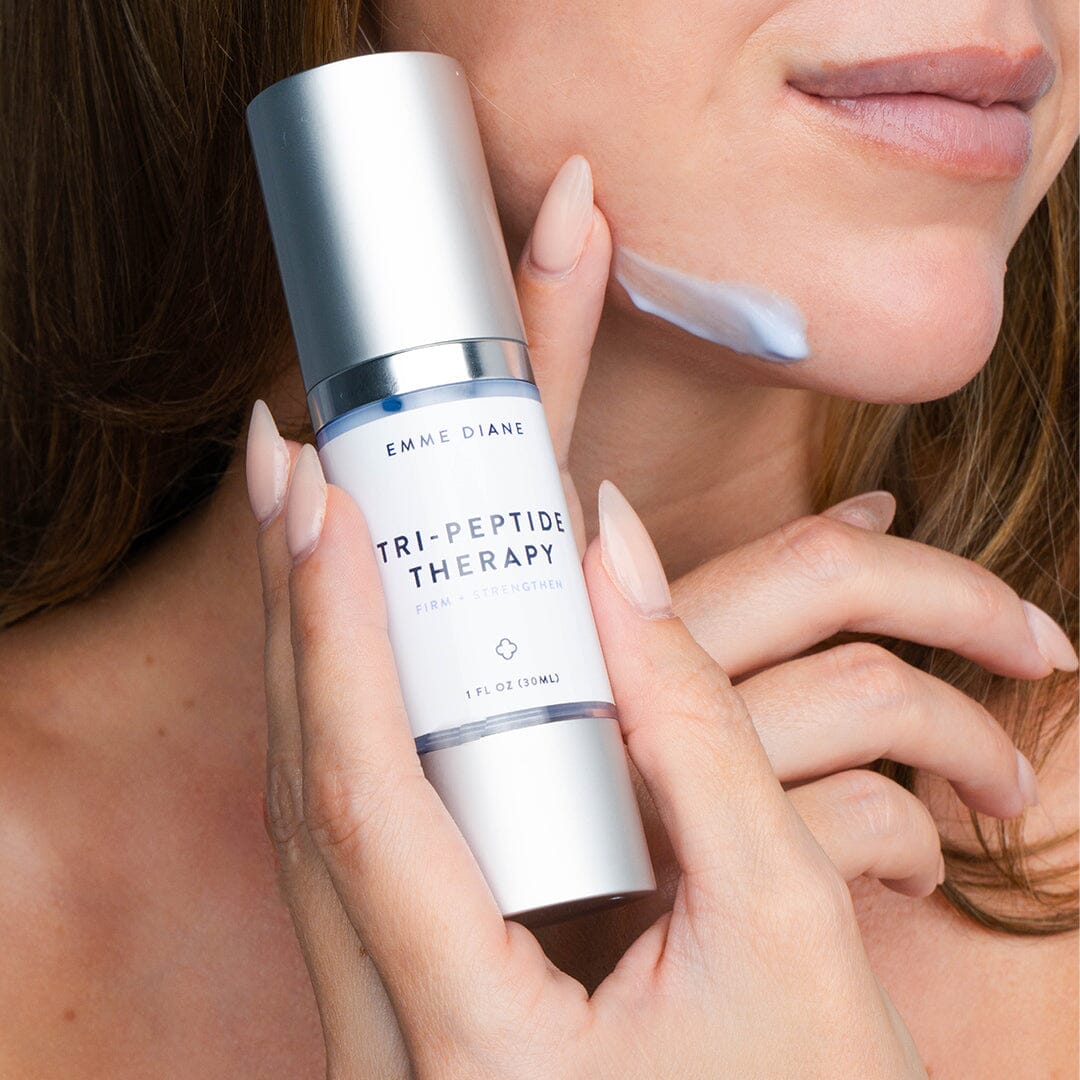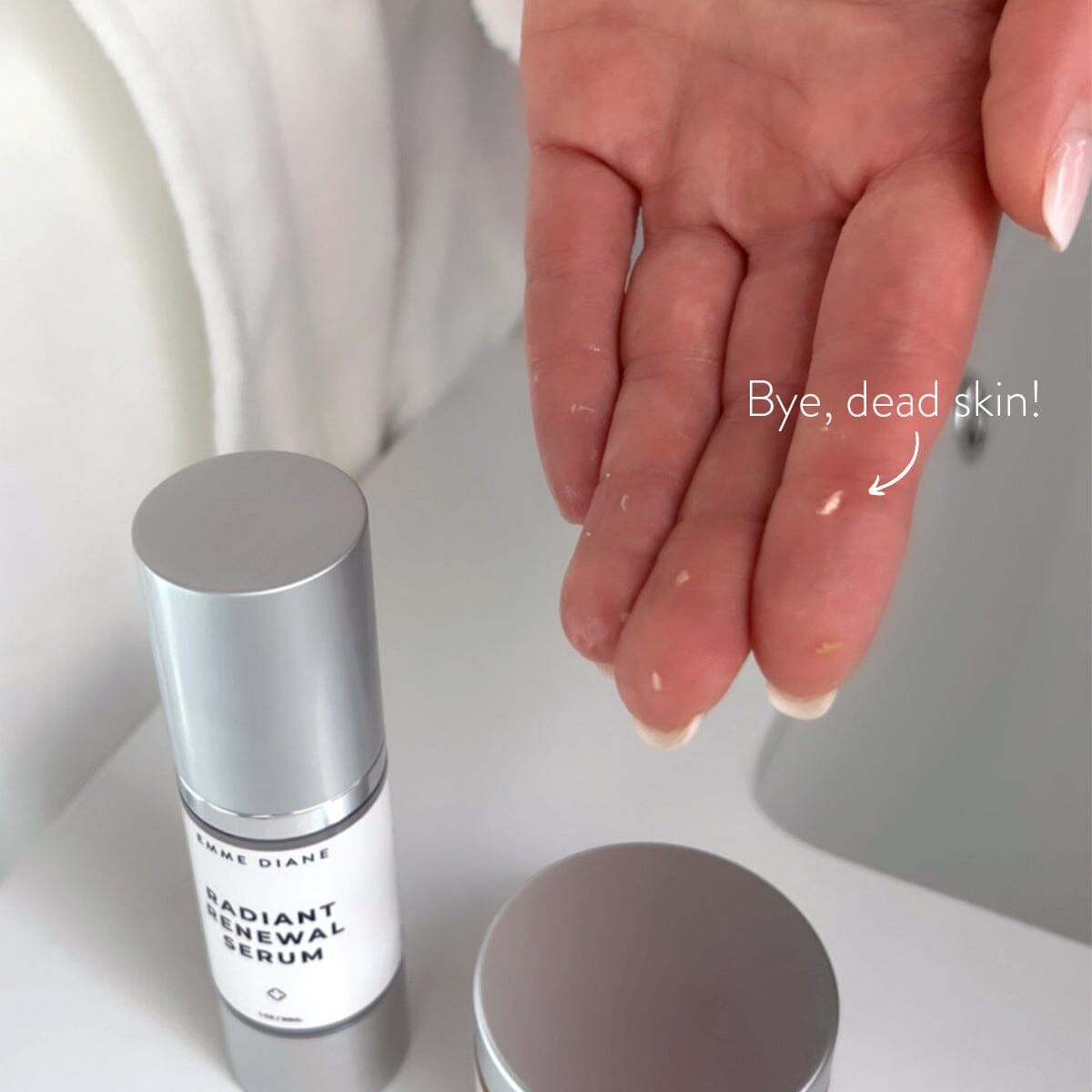Can Alcohol Affect Your Skin?
by Emily Linehan on August 11, 2022
Have you ever noticed that some pesky pimples pop up a day or so after drinking? Unfortunately, alcohol may be to blame.
Although alcohol consumption does not directly cause acne, it does play a role in several processes throughout the body that can make your skin more susceptible to acne and other issues. Of course, we aren’t here to tell you to cut out alcohol completely, however, if you’re struggling with acne you may want to read on to learn how it can be affecting your skin.
Alcohol and Hormones
As mentioned above, alcohol is not the cause of acne, but instead is a trigger for those that are acne prone. It can cause inflammation, and dehydration, impact your immune system and even have a range of effects on your hormone levels, which in turn, can lead to breakouts.
When alcohol is consumed it interferes with the portion of your brain that signals hormone production, which can lead to an imbalance of hormones linked to the development of acne. Similar to how hormonal imbalances in teenagers can trigger acne, the same can occur throughout adulthood. Although the occasional drink is unlikely to affect your hormones as much as puberty, a study [1] found that alcohol can increase testosterone levels in premenopausal women. As you may already know, testosterone is a primary aggravating hormone for hormonal acne due to it being highly inflammatory and causing an overproduction of sticky oil in the pores that can lead to breakouts. Not only can alcohol increase testosterone, but another study published by The American Journal of Clinical Nutrition [2] also found that alcohol can increase estradiol levels.
Furthermore, alcohol can raise cortisol levels, which is a primary stress hormone. High stress levels (which is an acne trigger itself) raise cortisol levels and can affect the amount of oil produced by your sebaceous glands, which in turn can trigger an acne breakout. The increased stress can also further strain your immune system, which we will discuss more below.
Your Immune System is Affected
While alcohol can cause an increase in certain hormones, it can also decrease the number of protective cells (white blood cells) in the body. A decrease, or destruction of these protective cells, can suppress your immune system, causing the body to work harder to protect itself [3]. What’s more, is that it can also lead to a potential build-up of bacteria. When the body's ability to defend itself against certain bacteria, like Cutibacterium acnes (C. acnes) bacteria, for example, occurs that leaves you more susceptible to the bacteria infecting your skin. When it comes to C. acnes, this often results in cysts and pustules.
Mixed Drinks Add Insult to Injury
Alcohol is often high in sugar, which we know can wreak havoc on acne-prone skin. After consumption, sugar absorbs very quickly into the bloodstream, resulting in increased blood sugar levels. In response to this, the pancreas produces insulin (which is a hormone that helps regulate blood sugar) to herd the blood sugars out of the bloodstream and into the cells. When a lot of sugar is consumed, the resulting insulin spikes cause a burst of inflammation and signal the liver to produce a hormone called IGF-1 (Insulin-like growth factor) to help restore balance to your bloodstream. Unfortunately, IGF-1 also increases testosterone, which as we discussed above, contributes to acne breakouts. To minimize the effects of alcohol on your skin, avoid sweet wines or mixed drinks that contain sugar syrups or fruit juices and instead opt for dry wines or low sugar alternatives, like a vodka soda with lemon.
Alcohol Can Lead to Dehydration
Have you ever woken up the morning after drinking and noticed that your skin looks much drier and less plump? This is because alcohol is a diuretic, which means it flushes out excess water and salt, which in turn dehydrates your body and skin. This excessive dryness will send your oil glands into overdrive in an effort to make up for the water loss, which although well-intentioned, often leads to increased breakouts due to the amount of sticky oil in the pores.
In addition to the increased risk of breakouts, chronically dehydrated skin is much more susceptible to premature aging. This is because oil moisture keeps the skin lubricated, and protected, and ensures skin cells are working efficiently. To reduce the harmful effects, be sure to drink in moderation and consume additional water to compensate.
How to Protect Your Skin
As mentioned before, we aren’t here to tell you to remove alcohol entirely. However, if you are gearing up for a night out, here are a few tips to help minimize the effects of alcohol on your skin.
- Avoid sweet wines or mixed drinks that contain sugar syrups or fruit juices. Instead opt for dry wines or low sugar alternatives, like a vodka soda with lemon.
- For those with sensitive skin or rosacea, try to avoid red wine. Red wine can create a histamine reaction in many individuals which causes the skin to become inflamed and red.
- Drink plenty of water to compensate. A good rule of thumb is to drink a glass of water after a serving of alcohol. Drinking in moderation is key, however, if you plan on having multiple drinks, alternating with water will help ensure you stay hydrated throughout the evening.
- Eat a full meal prior to (or during) drinking. This will help reduce side effects as some of the alcohol will be metabolized through the gastrointestinal system. In addition, consuming dietary antioxidants like blueberries or kale can help with the inflammatory triggers.
- Don’t forget your skincare routine. Just like how our muscles and brain repair and regenerate themselves while we sleep, so does our skin. Unfortunately, alcohol can disrupt sleep, which makes it especially important to make sure that your skin is well cared for prior to going to bed.
- Use a facial mist. Applying a few spritzes of Calm Down Toner directly onto your skin can help ensure you’re feeling hydrated and refreshed throughout the night!
To learn more about what dietary factors could be affecting your skin, be sure to check out my recent blog, ‘Are These Foods Triggering Your Acne?’ Additionally, if you have any questions or are interested in uncovering additional triggers, I highly recommend starting with my free online consultation. Or, if you’re an existing client, complete a quick check-in so that we can touch base!
xoxo, Emme
Citations
[1] Sarkola T, Fukunaga T, Mäkisalo H, Peter Eriksson CJ. Acute effect of alcohol on androgens in premenopausal women. Alcohol Alcohol. 2000 Jan;35(1):84-90. doi: 10.1093/alcalc/35.1.84. PMID: 10684783.
[2] Karen C Schliep, Shvetha M Zarek, Enrique F Schisterman, Jean Wactawski-Wende, Maurizio Trevisan, Lindsey A Sjaarda, Neil J Perkins, Sunni L Mumford, Alcohol intake, reproductive hormones, and menstrual cycle function: a prospective cohort study, The American Journal of Clinical Nutrition, Volume 102, Issue 4, October 2015, Pages 933–942, https://doi.org/10.3945/ajcn.114.102160
[3] Sarkar D, Jung MK, Wang HJ. Alcohol and the Immune System. Alcohol Res. 2015;37(2):153–5. PMCID: PMC4590612.


